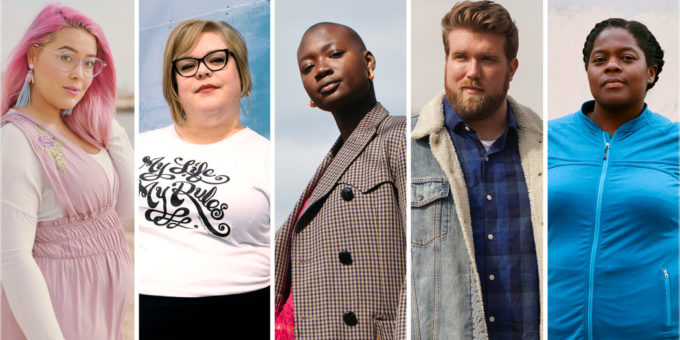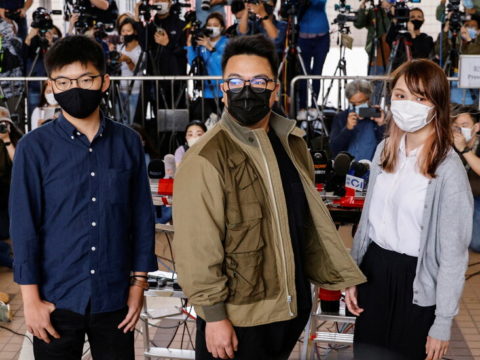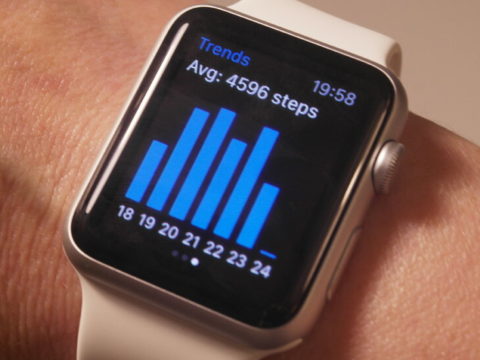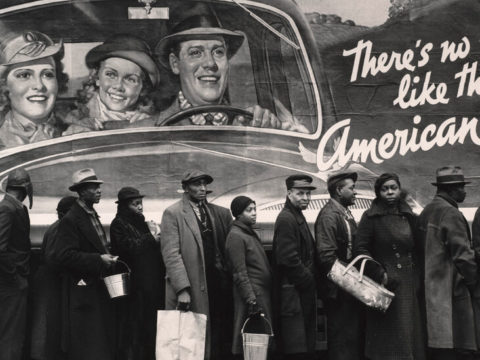
If you’ve ever been on a diet, you probably told yourself that as soon as you lost those pounds, you’d love your body. Maybe you did actually achieve that goal weight, or maybe you didn’t. But chances are, you didn’t end up with a long-lasting love for the way you look.
Whether it’s weight loss or some other element of your appearance, you shouldn’t wait for some magical change to start loving your body. Loving your body as it is, regardless of your exercise routine or diet is one of those rare “life hacks” that doesn’t have a downside.
But after a lifetime of wanting to be different, suddenly falling in love with what you see in the mirror isn’t so simple. So how do we learn to love our bodies, and who can teach us? Here are five people who have been down this road, learned to love their own bodies, and most importantly, are on a mission to help others learn to love themselves, too.
Mirna Valerio
Ultramarathoner
If you’ve told yourself that you were too big/weak/out-of-shape/old to be an athlete, Mirna Valerio can change your mind. She’s an “ultramarathoner,” or someone who runs races longer than the traditional marathon race of 42 kilometers (or 26 miles.) She’s also the blogger behind Fat Girl Running and the author of “A Beautiful Work in Progress.”
A health scare in 2008 inspired Ms. Valerio to pick running back up and she hasn’t stopped since. Running hasn’t transformed her physique, or turned her into a slender reed, but it doesn’t have to, and that’s the point. Her belief is that no matter what size your body is, it’s meant to move, and you shouldn’t feel as if you can’t do an activity or sport just because of how you look.
“When people ask me how they can move their bodies more, I tell them to just start with a walk around the block,” she said, “and to notice how their feet feel, how their legs feel, how things look and smell. Movement is about so much more than losing weight.”
Megan Jayne Crabbe
Author and Influencer
Megan Jayne Crabbe was first introduced to the concept of loving her body at 21, five years after an anorexia diagnosis. Even after being hospitalized and starting the road to recovery, Ms. Crabbe had hated how she looked. Then she stumbled across an Instagram post about body positivity.
“The whole world opened up for me,” she said. “I didn’t want to spend the rest of my life hungry and hating my body and, until that moment, I didn’t think I had a choice.”
In response to the hundreds of messages he gets from men who ask how they can be more confident in their bodies, Mr. Miko tells them to stop apologizing for their bodies or making jokes at their own expense. “Take yourself seriously,” he said. “Post a photo of yourself doing something you love, or having a great time, and resist the urge to beat people to the joke. Who you are is not a joke.”
Mama Cax
Model
Mama Cax, whose real name is Cacsmy Brutus, started her journey to loving her body at 17 years old, when a diagnosis of bone and lung cancer meant she had to have her right leg amputated.
“Once I had my surgery, I felt like I would never be able to love my body,” she said. After struggling with depression and the mental exhaustion that came with constantly trying hide her prosthetic, she turned to social media to express herself.
“I didn’t see body appreciation being shown to people with disabilities or people with scars, so I started sharing my story on Instagram. I was sharing for women who don’t see themselves as beautiful and don’t see their bodies celebrated.” Now, she is trying to raise the visibility of disabled bodies through her work as a model. Ms. Cax has walked in a fashion show at the White House, been selected as a face of Tommy Hilfiger, and most recently made her debut walking the runway at New York Fashion Week. She also shares her personal experiences on her blog.
Ms. Cax tells her followers to be very intentional about who they follow on Instagram and other social media. “It’s very different to follow somebody who you want to look like — no matter how unrealistic that is — than to follow somebody who inspires you and makes you feel better about yourself.”
Jes Baker
Author
Jes Baker delighted the internet in 2013 when she recreated an Abercrombie & Fitch photo shoot after quotes from 2006 made by the company’s then-CEO Mike Jeffries resurfaced addressing why they didn’t sell extra-large or above clothing. “Candidly, we go after the cool kids,” Mr. Jeffries said. “We go after the attractive all-American kid with a great attitude and a lot of friends. A lot of people don’t belong, and they can’t belong. Are we exclusionary? Absolutely.”
Outraged, Ms. Baker created “Attractive & Fat,” a series of photos featuring Ms. Baker in an Abercrombie and Fitch shirt, posing with a male model who gazes at her adoringly. The series got attention for highlighting how rarely popular media shows a large woman being desired by a thin man.
“I decided the best way to approach purposeful exclusion was to create my own ads,” Ms. Baker said. “Images that looked like Abercrombie & Fitch’s but highlighted a plus-sized body instead. The world loved them and hated them; which is the best outcome I could have asked for. Those who have desperately wanted to see a larger body in mainstream situations were ecstatic and those who were disgusted by the faux campaign were forced to look at their bias.”
Ms. Baker is the author of two books, “Things No One Will Tell Fat Girls,” and “Landwhale,” and writes about self-love and mental health. “People don’t realize that their obsession with physical health and beauty norms is taking a toll on their mental health,” she said. “What is it costing them to hate their body? Anxiety? Depression? How much happier would they be if they weren’t so focused on how they look? Not to mention the fact that our mental health directly impacts our physical health.
Credit: Source link














